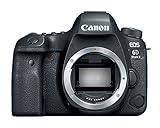
One member of our community, Sean Allen, asked a question in our Community on Facebook. He asked what the difference is between full frame and crop sensor DSLR cameras.
Some of you may already know the answer to this question.
If you do, please share your knowledge in a comment below.
Welcome to the full-frame vs. crop-frame DSLR camera debate!
Background
Back in the stone age when we all used film, 35mm became the gold standard film size.
When we switched over to digital, there was no film to be used.
On most DSLR cameras, the digital imaging sensor, which replaces film, is significantly smaller than 35mm film.
In 2002, the first sensor that equaled the size of 35mm film was produced.
Canon was the first mainstream camera manufacturer to produce a DSLR camera with a sensor the size of 35mm film.
I can just imagine how the meeting went when the executives at the Canon marketing department sat down and tried to think of a way to make their new DSLR seem ultra-incredible and make everyone else's camera seem like it was half a camera.
They accomplished this task by calling their 35mm equivalent sensor a “full frame” DSLR camera, and decided to call all other DSLR cameras “crop frame” cameras.
The marketing worked. Many photographers feel like they have only half a camera unless they get the new, shiny “full frame” DSLR.
The truth is that the “full frame” sensors aren't “full” at all.
It is an arbitrary size that was chosen at some point long in the past.
Obviously, a much larger sensor could be produced.
If this ever happens, I'm sure the marketing department at Canon or Nikon will have another meeting.
The truth is that a more correct name for “full frame” would be “35mm equivalent sensor.”
The correct name for a “crop frame” sensor would be “APS-C sized sensor.”
Sometimes, politically correct photographers will refer to full frame and crop frame with these names, so they are handy to know.
The Benefits of Full Frame DSLR Cameras
Full Frame Advantage #1: Low-light performance
Digital imaging sensors have tiny little light sensors that record light and produce a pixel.
The tiny sensors are called photosites.
Naturally, the larger the photosite, the more ability it has to capture weak light signals.
Picture it like a satellite dish.
Therefore, when all other factors are equal, a full-frame sensor will always perform with less noise at high ISOs than “crop frame” DSLR cameras.
Full Frame Advantage #2: Depth-of-Field
You may have noticed that although your point-and-shoot has an f/1.8 lens, it is nearly impossible to accomplish short depth-of-field on most point-and-shoots.
The reason is that the sensor size affects apparent depth-of-field.
Since a 35mm equivalent (full-frame) sensor is larger, it can accomplish a more shallow apparent depth of field than an APS-C sized (crop sensor) camera.
Full Frame Advantage #3: Viewfinder Brightness
Because full-frame cameras use larger lenses, they can produce a brighter viewfinder image. Very handy.
Full Frame Advantage #4: Pro bodies
Unfortunately, both Canon and Nikon do not make DSLRs with all the bells-and-whistles in a crop sensor format.
In my opinion, this is a shame. Still, it's the world we live in.
Those who simply prefer a crop sensor camera cannot get all the same ultra high-end features available on the full-frame bodies. Ugh!
The Drawbacks to Full Frame DSLR Cameras
Full Frame Problem #1: Cost
Imaging sensors are cut out of large sheets of expensive chips called wafers.
Since a full-frame sensor is larger, only 20 sensors can be cut out of a standard-sized wafer.
This, among other similar production costs, means that full-frame DSLR cameras will always come at a premium.
Full Frame Problem #2: Field of View
This is both a drawback and a benefit. Landscape photographers like full-frame cameras because it makes all lenses seem like they are zoomed out more.
You might think of crop sensor cameras as having a built-in zoom of 50 or 60%.
This is a blog post all of itself to fully explain.
Just know that SOME wildlife photographers choose a crop frame camera to get the extra zoom and landscape photographers almost universally prefer full frame, even though a crop frame camera can achieve the same wide angle of view by buying a wide-angle lens built for a crop frame camera, like the fantastic Nikon 10-24mm.
Just to be technically correct, the sensor size doesn't magnify the scene at all, it just restricts the field of view.
Full Frame Problem #3: Weight
The sensor itself barely adds any weight to the DSLR, but it requires larger, heavier, and more expensive lenses.
This means that the gear can be much more cumbersome and awkward to use.
Full Frame Problem #4: Lens availability
Although full-frame lenses will work properly on crop frame DSLRs, the reverse is not true.
Therefore, crop sensor DSLR cameras have a greater variety of lenses available to them.
What this Means for Buying Lenses
On a Canon camera, you should know that a full-frame EF lens will work on any EF-S crop sensor body.
However, the reverse is not true. EF-S lenses do not work on full-frame Canon bodies.
In the Nikon system, both crop sensor DX lenses and full-frame FX lenses will function on crop or full-frame bodies.
However, (and it's a big however), if you put a DX lens on a full-frame body, you'll see that a significant portion of the edge of the frame is black.
This is caused by the smaller DX lens not reflecting the image onto the full area of the full-frame sensor.
So in short, full-frame cameras require full-frame bodies.
Crop sensor cameras can use either full-frame or lenses for crop sensor cameras.
The only difference between Canon and Nikon in this regard is that Canon's crop sensor lenses won't even mount on a full-frame Canon. On the other hand, the Nikon crop sensor lenses will mount just fine but the functionality is mostly useless.





Good explanation with the exception that “mostly useless” overstates the functionality of Nikon APS-C lenses on Full Frame bodies. While using those lenses, for the most part, will cause heavy vignetting, most newer Nikon Full Frame bodies will detect the APS-C lens and crop the photo thereby matching an APS-C body but with correspondingly lower resolution. In the case of the D8X0 cameras, this results in a very usable 15MP +/- image while also increasing the image capacity of the buffer.
hi, i just recently upgraded to a canon 6d which is a full format camera.
how do i know what lenses will fit it, what am i looking for to make sure the lens is a full frame?
You’ll need to get a lens that says EF on it, not EF-S. That’s how you know.
And the 6D hits a sweet price-point for a FF DSLR, so long as you aren’t doing much action photography. I’d definitely buy another one vs a 5DIII.
I have a nikon D3300, it’s a crop sensor camera and I was wondering if I should upgrade to a full frame for night sky photography?
Nope. You don’t need to upgrade unless you’ve explored your camera thoroughly and you know it thoroughly, by which point you will not have to ask if you need to upgrade, you’ll just know. So if you’re asking, you definetly don’t need an upgrade – get a wider good prime lens perhaps? Rokinon 14mm f/2.8
Currently, I’m looking at picking up either a full frame or crop sensor camera, so this segment was helpful indeed. I tend to keep my cameras (and vehicles) for 10 years or more. Was recently looking at a site reviewing the differences between the crop censored Canon 70D, vs the Nikon (full framed) D750. There is a considerable difference in price of course, ‘plus’ I would have to pick up lenses for both, albeit, I see many on Ebay for affordable prices. I don’t necessarily have a specific budget on my purchase price, but I would like a good result at the end of the day, of which I believe either camera can/would produce. I will say up to this point I’ve had several Canon ‘point & shoot’ cameras, going back to the day I had my Canon AE-1 SLR, which I still have, plus lenses for it as well, albeit all being manual of course. At any rate, it would be nice to know which choice is the right way to go…for longevity, as I will keep the camera for a very long time for sure. I do tend to take scenery photo’s more than any other to date, but currently have grandchildren, of which more video will be taken in the future of them, and any sports they choose to take over the years.
The irony is that the old Canon FD lenses are about the only really common mount of lens that, because of the mount’s short flange focal distance, cannot be used on the common brands of DSLR and reach infinity focus using a plain adapter. An adapter with optics that effectively increases the lens’ focal length (and projects the focal plane backwards) is needed. This is not an issue with mirrorless cameras because these all have much shorter FFDs, which allows an adapter to fit between the back of the lens and the front of the camera with the lens close enough to allow infinity focus.
Ur web site very. Important. Because. Its make acknowledble photograper.
Thank you & Good luck
From sri lanka
“‘Those who simply prefer a crop sensor camera cannot get all the same ultra high-end features available on the full frame bodies. Ugh!”
Well… the pentax k-3 and k-3II are pro aps-c bodies! I’d argue the D7200 and 7DmkII are virtually pro bodies as well…
No. They are consumer stuff sold at best buy.
I am clearly very late to this whole discussion, you know you can still take a photo with a Box brownie and have a really great photo, it’s the image, the moment! The critical moment! Where did we all hear that.
I am here as I wanted to know the difference between Lightroom and elements, as along with a number of other software apps I have walked a path, that leads me back to 35mm 645 and 6 x7, and a “wet” space again.
It’s wonderful to read all these posts, but, it will always be the moment, nothing more
I have a Nikon D300 . I’m a very amateur photographer and at 77 probably, not going to learn to be much better. I find that doing enlargements
my photo’s are constantly being cut down in length loosing about 20 percent. Will a full frame camera salve that problem? It also sounds like, if I did go full frame I would not be able to use the lenses i have?
Ken
Wow thanks for sharing this.. this is exactly what I was looking for
Thanks! This was really a wonder discussion and insight into full vs. APS-C sensors.
However, can anyone tell me whether megapixel size is more important than sensor size? Hypothetically, which would give me a “better” picture? A 12mp FX picture or a 24mp DX picture?
Am I making the wrong assumption that the more mps the better the picture whether it was shot in FX or DX?
@JMK,
It really depends upon what you are shooting. If it is the Milky Way Galaxy, the 12mp full frame sensor will be better because it is significantly better in low light conditions. If you are shooting with plenty of good light, or using off camera flash, then the glass you have in front of the sensor will have more impact than that full frame vs. crop sensor. Part of the reason full frame sensors are perceived to be so much better than crop sensors has to do with the really good (and expensive) lenses used on full frame vs. crop. Crop sensor bodies have lenses that are cheap and not very good for image quality. If you put a really good lens on a crop sensor body and have good light, I would choose the more megapixels of the crop over the full frame myself.
My EGO would love a Full Frame. My accountant however is dictating that a crop sensor is in my future. Best bet for me is to focus on the knowledge base, not the gear base.
@Jim Harmer
@Jeff Harmon
On the last paragraph: “So in short, full frame cameras require full frame bodies.”
I think you mean: “So in short, full frame cameras require full frame LENSES.”
Amazing how in 5 years no one has noticed that. Maybe everyone reading this already has an stron opinion and is so eager to come to the comments that the end is always skipped.
Hehe, just kidding, you guys rock and the podcast is great!
Cheers.
मुझे अच्छा लगा की फूल फेम कैमरा और क्रॉप सेंसर में अंतर पर
Wow a lot of great information here. I was just about ready to get the 5D M3…but something is telling me to wait until I get some feedback. I do a lot of family..portrait.. product and interior commercial photography. Currently I have the 50D…but wanted to go full throttle with a FF camera. Now that I am reading more…i am just curious to hear the opinions about getting the M3 over the 6D. Any thoughts?
I saw a comment from Rocketride pertaining to mirrorless cameras….which I’m seeing online is the next evolution for camera systems……can these be used for professional photography or is DSLR the way to go for the pros?
Thanks, Michelle – I was just about to say “And then came mirrorless cameras!” before I saw your note.
It’s all too hard and I don’t care – whichever way it turns out, I have fun taking photos. So I’m hedging my bets – I have one of each – a full frame, a half frame and (shortly) replacing my compact with a mirrorless. Then it simply won’t matter any more, which one is “right” and whether the others are “wrong”.
I’m far more interested in pursuing my photography – I have two projects running at the moment, and the greatest frustration is the weather, not the gear. The geckos I want to photograph with my macro lens have decided it’s not warm enough to sunbake and so they are hibernating – and my sunsets are being drowned by welcome autumn rains (I live south of the equator – autumn or fall or whatever is now, while you’re enjoying a northern spring).
If my DSLR isn’t a full frame , does it make any change while viewing in monitor.
This was very interesting and I will keep it in Mind when buying other lenses . I bought a Nikon D610 a month ago and what a difference in the quality of the pictures . I am happy with this camera . I am looking for a good close up lens (105)or closer at a reasonable price. I am sure that this camera will give me excellent shots .
i am a photographer form Asia and i already used crop sensors camera for my first experience . know i upgrade my camera and i bought canon 5d mark iii 🙂 . the problem is what lens i should use for travel photography, filed activities and for indoor meetings, conferences.
i am a photographer form Asia and i already used crop sensors camera for my first experience . Now i upgrade my camera and i bought canon 5d mark iii 🙂 . the problem is what lens i should use for travel photography, filed activities and for indoor meetings, conferences.
I don’t quite get the wordings – that lens mounted (if allowed so) on crop sensor cameras give extra zoom compared to full frame cameras. Please clarify.
Zoom as in magnification should be the same. I understand they get narrower angle. Zoom as in angle of view will be reduced ‘as if’ it was a real zooming compared to the wider angle of the same lens on full frame camera.